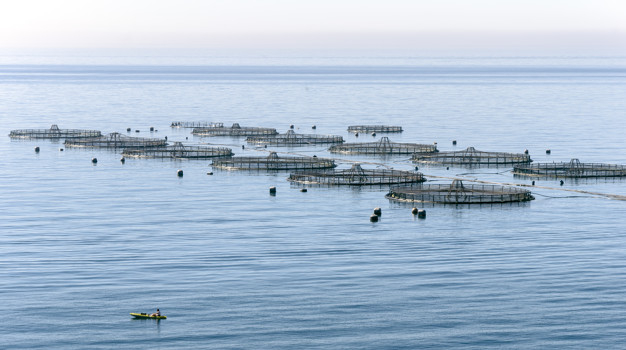The Diplomat
The PP deputy for Melilla, Fernando Gutiérrez Díaz de Otazu, filed a complaint on Friday with the Public Prosecutor’s Office against the fish farm installed by Morocco in the vicinity of the Chafarinas Islands, according to El Faro de Melilla.
The newspaper indicates that the complaint was filed for the alleged crimes “against natural resources and the environment included in articles 325 and following of the Penal Code that could have been committed”.
In an extensively argued text on both Spanish and European environmental regulations, Díaz de Otazu recalls that the Chafarinas Islands are in the public domain of the Ministry of Defence, which, through the General Command of Melilla, maintains a permanent garrison on the islands. It also establishes that the “coastline of the territories corresponding to the Autonomous City of Melilla, the Chafarinas archipelago, the Vélez de la Gomera rock and the Alhucemas rock with the islets of Mar and Tierra, are within the territorial scope of the Maritime Captaincy of Melilla and the waters under its jurisdiction, and of the Maritime District of Melilla”.
After making clear the Spanish ancestry of the waters surrounding the Chafarinas, the MP states that the fish farm consists of ’16 circular floating cages placed in two parallel rows of eight cages each, forming a rectangular enclosure marked out by buoys’ and points out that the installations ‘are anchored to the seabed’. He also clarifies that “one of its vertexes is less than three hundred metres from dry land”.
The Popular MP echoes the publications in the press about this fish farm on 24 November, when it became known that the cages were supplied and installed by a Spanish company “on behalf of a Moroccan company which, apparently, uses an alleged concession from the Kingdom of Morocco”.
However, according to the complaint, these waters are under Spanish jurisdiction and, consequently, there is no “licence, concession or administrative authorisation from any Spanish authority or public administration”, bearing in mind, furthermore, that “the Kingdom of Morocco has no jurisdiction whatsoever in Spanish territorial waters and, therefore, the alleged concession used by the Moroccan company is null and void”.
Independently of the question related to the jurisdiction of the waters occupied by the fish farm, the MP Otazu argues the protected nature of the islands, having been declared a “Special Area of Conservation Site of Community Importance” within the “Mediterranean biogeographical region of the Natura 2000 Network”. Not to mention the fact that it is also a “Special Protection Area for Birds”.
Díaz de Otazu reasons in his complaint that not only does the fish farm currently not have authorisation from the Natural Parks, but that “it could not even be legalised in the future in accordance with current law”.
The Popular MP believes that an alleged crime against natural resources and the environment could be being committed “given the type of installation, which is anchored on the sea floor of an environmentally protected area and whose activities are clearly detrimental to the habitat of the area, as the operation involves discharges that destabilise the ecosystem”.
The alleged offence denounced by Díaz de Otazu is punishable “with prison sentences of six months to two years, a fine of ten to fourteen months and special disqualification for a profession or trade for a period of one to two years”. If the damage that could be caused seriously damages the balance of natural systems, the penalty would be a prison sentence of two to five years, a fine of eight to twenty-four months and special disqualification for one to three years.
Finally, the complainant asks the Public Prosecutor’s Office for the Environment and Urban Planning to open the corresponding proceedings “that will lead to the clarification of the facts”.






